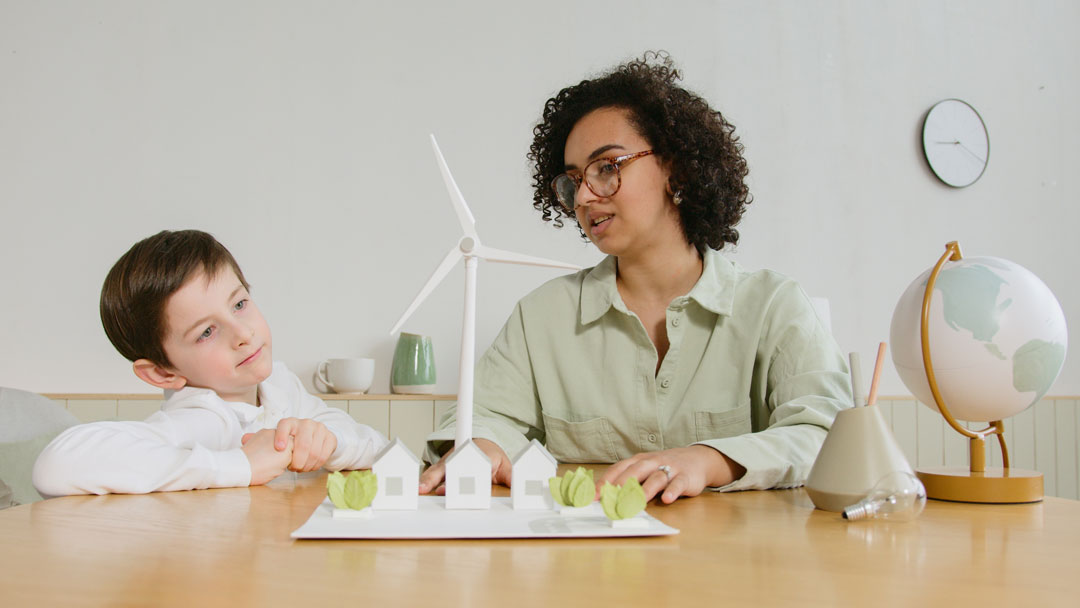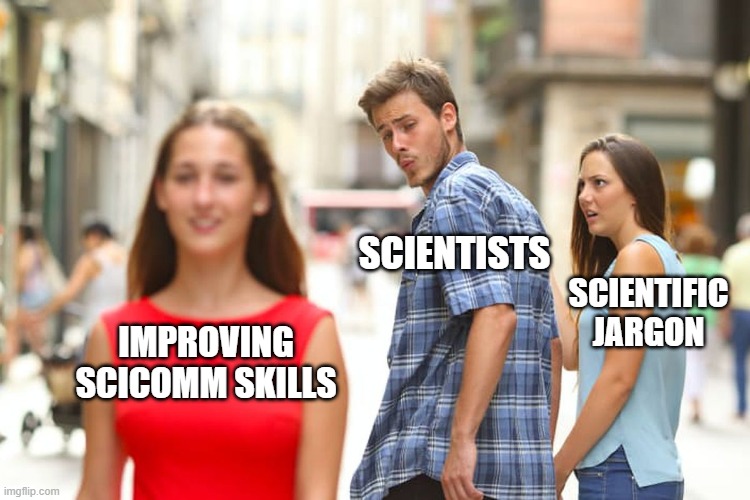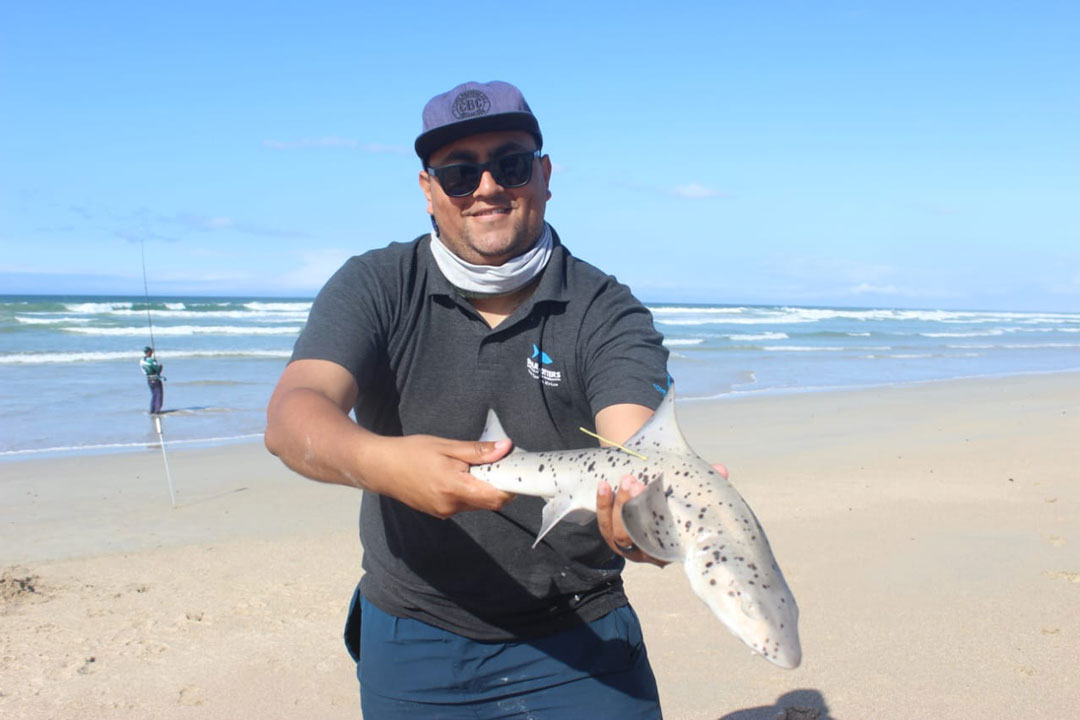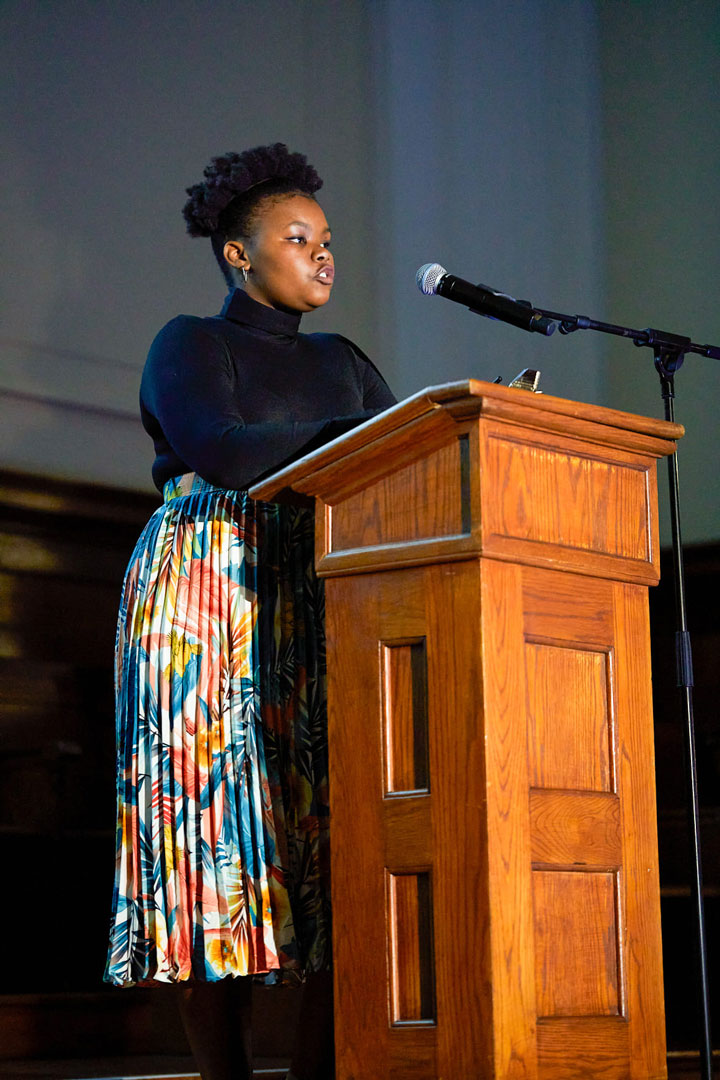Tackling sci-comm at Stellenbosch University
Science Communication – an oldie but a goldie
When a child starts observing the world around them, they ask their parents questions such as: why is the sky blue, why do birds chirp, why do stars shine, and why do sharks bite people? The parents would attempt to answer the simpler questions with simple answers catered to the child’s comprehension level. Tougher questions that use scientific terms or concepts the young mind cannot comprehend are answered using stories, songs, or, sometimes, the child is made to watch a television show that addresses the question. Using simple language, stories, songs, films and media to simplify and disseminate scientific knowledge is the basis of scientific communication.

Photo by Artem Podrez | pixel.com
Science communication dates back to the 1800s when scientists would demonstrate and aim to popularize science through public demonstrations (see Lifeology course for more on Science Communication). Fischhoff (2013) states, “The goal of science communication is not agreement, but fewer, better disagreements. If that communication affords people a shared understanding of the facts, then they can focus on value issues, such as how much weight to give to nature, the poor, future generations, or procedural issues in a specific decision”.

Source: google.com | Meme created by Sheeva Azma
Scientific research and public education are core pillars of Shark Spotters’ mandate, and as such, we are always learning new ways to communicate our sometimes complicated findings into easily understandable formats that educate and inspire action and change among our audience. Science communication is certainly not a skill that comes naturally to most scientists, and in an ever-changing communications world, keeping abreast of new developments in the science communication field through training is an important part of any modern scientist’s career.
Stellenbosch University’s Science Communication Course
Last year, two of our management staff completed Stellenbosch University’s acclaimed short course titled Science Communication: An Introduction to Theory, best practice and practical skills. Running annually over 11 weeks, the purpose of the course is to equip individuals with the skills to demonstrate the impact and social relevance of public-funded research, work effectively with mass media and social media in implementing science communication strategies and equip participants with core skills required to motivate investments in public communication of science, create innovative ways to make complex science accessible to relevant audiences and to provide professional development opportunities for people working in environments where science and research outcomes need to be made accessible to the general public and to science policy audiences.
The course is led by senior researcher Marina Joubert and PhD candidate Lili Rademan, who both are at The Centre for Research on Evaluation, Science and Technology (CREST) at Stellenbosch University.
Shark Spotters staff reflections on the science communication course
Brandon Beukes (Shark Spotters Graduate Programme Coordinator) reflects on being a course participant
Thanks to Shark Spotters, I had the great opportunity to participate in the Science Communication short course hosted by Stellenbosch University. The quality of the course content, coupled with the highly experienced facilitators, meant that from start to finish, this course was filled with valuable lessons and experiences. Anyone who works within any scientific field will be aware of the challenges faced when trying to share their work with both the scientific community and the average person.
I often feel that after doing all the nitty-gritty of getting through the experiments, back and forth with supervisors, late nights reading articles and hours spent agonising over minor details of your thesis, the last thing you want to do is “dumb all your work down” so that someone with no scientific background can understand your work. This course has drastically altered that viewpoint and has challenged my understanding of what science communication looks like. I have learnt how important the process of storytelling is when communicating new information, particularly technical information.

Brandon at a tagging trip with his ORI tagged spotted gully shark | Photo supplied
For all its negatives, social media is increasingly the essential means for the South African public to learn about scientific advancements outside of formal education. Whether we agree with it or not, our ability to make our scientific knowledge more digestible and eye-catching to the public will be to our own benefit. This course has helped with identifying the tools available (social media, blogs, infographics etc.), which I will certainly be using in future to help people better understand the cutting-edge science we are undertaking at Shark Spotters.
Jamila Janna (Shark Spotters Communications Officer) reflects on being a course participant
As someone already passionate about science communication, the course has opened my eyes to all the possibilities in space. I am grateful that I could learn from Marina Joubert and Lili Rademan, who facilitated the online sessions with great conduct and professionalism. The assignments allowed me to put into practice what I had learnt and receive valuable feedback from the facilitators. The final assignment was challenging, but it required me to think out of the box, be creative and fine-tune the science that I was trying to communicate without changing the meaning. It was interesting to learn the difference between science journalism and science communication and how both have adjusted to a digital world. I am grateful to Shark Spotters for affording me this opportunity to grow. I look into the future excitedly as I apply everything I have learnt to my work and research.

Jamila presenting about the importance of traditional knowledge turning the tide, using poetry and visual mediums to convey the message | Photo supplied
Conclusion
Here is an urban myth I once heard from a radio station when I was younger: “Having house plants can kill you, especially at night when you’re asleep”. As a young girl, I believed all the information from the media. This statement, which presented itself as a ‘how to stay alive’ tip, governed how I viewed house plants until recently when I debated with a close friend about their harmful effects. All logic went out the door as I completely explained why houseplants could kill you at night. My friend constantly laughed at me as he egged me on to explain how a houseplant could kill a human at night. To explain myself, I regurgitated some information from my second-year plant physiology and botany modules. As I defended this statement – with facts – it started to feel wrong. Trying to redeem myself, I unlocked my phone and Googled “Can house plants kill you at night?”. Google responded, “This common urban myth…”
I was surprised by what I read and needed to find something that supported what I had heard years ago, but I could not find articles that said plants could kill you at night. Today, information can be easily accessed and can be shared fast on social media and other platforms on the internet. Misinformation can spread like wildfire. Speculation can be perceived as scientific facts. In addition, this information can exist in a society generations after, influencing how people live their lives. We have seen this with the generations that have watched the movie Jaws and their perception of white sharks. There are several negative implications to this, and science communication plays a vital role in ensuring that information accessed and shared across the internet is factual. It is an oldie, yes, but a goldie!
Are you keen to take the SU Science Communication course? The applications for the 2023 course are now open. Click here for the details.
References
Fischhoff, B., 2013. The sciences of science communication. Proceedings of the National Academy of Sciences, 110, pp.14033-14039
